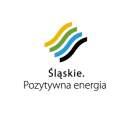Europe wants to take the lead in developing shared and effective security protocols. Making cities and mass events safe is one of the key aspirations reflected in “Goal 11” of the 2030 Agenda. Crowded public spaces pose major safety challenges, often resulting in fatalities, due to their mass concentration, making it difficult to predict and act appropriately in case of emergencies, thus eventually leading to serious causalities or accidents, such as happened in occasion of the Love Parade accident in Duisburg, Germany, the Madrid Arena accident or the crushing of a crowd in South Korea, among others.
The right to be protected is one of the basic rights of citizens. Security is a top priority of the EU's political agenda as cities across Europe face pressing security challenges. These challenges are increasingly complex, ranging from terrorism and organised crime to political and economic unrest, natural disasters or crowded spaces. The European Commission has defined security as "the condition of being protected or not exposed to danger; [...] a feeling of safety or freedom or absence of danger".
From this perspective, ensuring urban safety and security requires a participatory and city-wide process to address the multiple causes and risk factors of crime, violence and insecurity in cities and human settlements, and to develop and implement security solutions to protect against these causes and risks.
CO-SECUR Project
In this context, the CO-SECUR project aims to advance the adoption of successful, more effective and co-produced security protocols and solutions for public spaces, with a special focus on mass events and crowded places.
CO-SECUR will bring together knowledge on social innovation in the field of security, contributing to build trust, acceptance, improving security and security perception, as well as promoting safer conducts.
This project, recently funded by the Horizon Europe programme with 2 million euros, will be coordinated by Kveloce, an international consultancy headquartered in Valencia (Spain). In addition, it has 9 countries in its consortium, composed of different entities, such as the Polibienestar Research Institute of the University of Valencia (Valencia, Spain), Saferglobe ry (Helsinki, Finland), German Forum for Urban Security (Hannover, Germany), Shine 2europe Lda (Coimbra, Portugal), European Integrated Project (Bucharest, Romania), Evalu Sp. z o.o. (Warszawa, Poland), Tero (Kalamaria, Greece), Smart Continent lt uab (Vilnius, Lithuania), Digital Europe (Brussels, Belgium).
This project will support the first time a comprehensive portfolio of security initiatives in Europe selected from a socially responsible research perspective, by identifying, mapping, and analysing specific activities, projects, technologies, and policies that leverage socially responsible research and innovation. In addition, the major achievement of this project will be the co-creation of knowledge, bringing together different EU countries and different security-related actors, such as police, state security forces, security companies, policy makers, universities and event organisers or technology development companies.
The CO-SECUR project goes beyond existing knowledge on the feeling of security from a human and societal perspective, creating knowledge and a set of tools. Furthermore, the CO-SECUR analysis will focus on nine countries (Spain, Finland, Germany, Portugal, Romania, Poland, Greece, Lithuania, Belgium) and at the same time it will take into account other EU and international initiatives outside the partners' countries, thanks to the international and networking nature of the CO-SECUR consortium.
In this way, CO-SECUR will contribute to Goal 11 of the 2030 Agenda, making cities and public spaces safer, while harnessing the concept of smart citizenship and local communities. The knowledge generated and tools provided by the project, including a Social Development Plan on Security, will enable individuals and communities to be direct participants in the creation of safe environments, cities and territories. CO-SECUR is strongly aligned with the smart cities and communities’ approach, in which infrastructures, networks and services are made more efficient with the use of technological solutions for the benefit of their inhabitants and businesses.
Security is a complex issue that relates to and depends on aspects such as innovation and social cohesion, law enforcement, societal resilience and community empowerment in the face of all forms of violence. In this context, the concept of "safer cities and human settlements" includes integrated, innovative and inclusive approaches to urban safety, which complement the concept of crime prevention and are based on principles of community cohesion.
„Funded by the European Union”
Entity information
Contact details:
Evalu sp. z o.o.
Dzika 19/23 lok. 55
00-172 Warszawa










